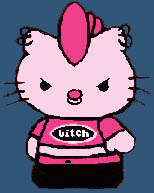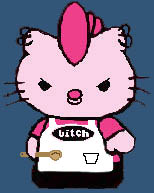New Holly in the news
The Seattle Times ran an article on my neighborhood last weekend.
My neighborhood is part of what amounts to a giant social experiment, spearheaded and overseen by the Seattle Housing Authority. On one hand we knew what we were getting into when we bought our home in New Holly. I knew a little of the reputation of the area, it was clear that we were going to lack amenities for a while while development caught up to the new population. Everyone was clear up front that this was going to be a "blended community" and that didn't scare me. There are some yuppie homeowners in our HOA who are very prissy about the state of the rental units or the attitudes of this ethnic group versus that ethnic group but I've lived in plenty of rental properties in my lifetime. My mom scraped her way up to working class and I know that economic disadvantage does not mean "bad people" even where it does signal challenges. I had high hopes for our neighborhood when I bought in and I still feel that hope, though I would really like to see someone open a frickin' coffee shop or nice restaurant. "Maybe when the Light Rail construction is finished," I keep telling myself.
I do have some issues with the SHA. SHA remains the biggest owner in the development, owning houses that are rental units to replace the public housing that was torn down to build these new homes; I assume it was the SHA that drafted the New Holly Homeowner's Association by-laws and the community rules which we live under (such as the "no window air conditioning units" clause or the "you can't paint your steps anything but grey" rule) as they were the only homeowners before the houses were sold to people like me. When I bought my house the HOA rules and codes were in place and I was forced to sign on to them as they were as a condition of getting my mortgage. I'm not a fan of the state the SHA-controlled HOA board left things, including the issue with faulty water-billing and the lack of proper reserve funds, or the overly-cozy relationship certain SHA board members exhibited toward the utterly incompetent and offensively poor management company the SHA-controlled board hired to "manage" our community. That is not to say that I don't appreciate certain individuals from the SHA who have tried to make this thing work well and who have represented community interests to the HOA board or the larger SHA; I'm just not willing to give the whole Seattle Housing Authority a pass for things I consider bad policy (like their admitted policy of knowingly setting initial HOA dues unsustainably low to bait people into buying in, knowing that substantial increases would be necessary but not disclosing that plan to home buyers).
Now that I've had that little rant, I think the article does a fair job of presenting some of the issues in the community while not overselling its successes or underselling its potential. I agree that language is the biggest barrier, as we saw when I was trying to get fair hearing for my Chinese-speaking neighbors. Without a common language it's very, very difficult to find anything else in common or have meaningful interactions beyond friendly smiles and waves, which is pretty much my entire relationship with my immediate neighbors. Even so, it wasn't until this last year that I met or interacted much with any of my neighbors, English-speaking or not. We barely squeaked into this neighborhood when we bought our house and while we're categorized among the white, English-speaking (let's be frank) yuppies who've bought homes here, we're really not part of that "class" either. We're not doctors, lawyers, or Microsofties. I'm fairly uncomfortable with the idea that I'm supposed to be a "role model" for my less fortunate neighbors or "help them out of poverty" as the article proposes.
My neighborhood is part of what amounts to a giant social experiment, spearheaded and overseen by the Seattle Housing Authority. On one hand we knew what we were getting into when we bought our home in New Holly. I knew a little of the reputation of the area, it was clear that we were going to lack amenities for a while while development caught up to the new population. Everyone was clear up front that this was going to be a "blended community" and that didn't scare me. There are some yuppie homeowners in our HOA who are very prissy about the state of the rental units or the attitudes of this ethnic group versus that ethnic group but I've lived in plenty of rental properties in my lifetime. My mom scraped her way up to working class and I know that economic disadvantage does not mean "bad people" even where it does signal challenges. I had high hopes for our neighborhood when I bought in and I still feel that hope, though I would really like to see someone open a frickin' coffee shop or nice restaurant. "Maybe when the Light Rail construction is finished," I keep telling myself.
I do have some issues with the SHA. SHA remains the biggest owner in the development, owning houses that are rental units to replace the public housing that was torn down to build these new homes; I assume it was the SHA that drafted the New Holly Homeowner's Association by-laws and the community rules which we live under (such as the "no window air conditioning units" clause or the "you can't paint your steps anything but grey" rule) as they were the only homeowners before the houses were sold to people like me. When I bought my house the HOA rules and codes were in place and I was forced to sign on to them as they were as a condition of getting my mortgage. I'm not a fan of the state the SHA-controlled HOA board left things, including the issue with faulty water-billing and the lack of proper reserve funds, or the overly-cozy relationship certain SHA board members exhibited toward the utterly incompetent and offensively poor management company the SHA-controlled board hired to "manage" our community. That is not to say that I don't appreciate certain individuals from the SHA who have tried to make this thing work well and who have represented community interests to the HOA board or the larger SHA; I'm just not willing to give the whole Seattle Housing Authority a pass for things I consider bad policy (like their admitted policy of knowingly setting initial HOA dues unsustainably low to bait people into buying in, knowing that substantial increases would be necessary but not disclosing that plan to home buyers).
Now that I've had that little rant, I think the article does a fair job of presenting some of the issues in the community while not overselling its successes or underselling its potential. I agree that language is the biggest barrier, as we saw when I was trying to get fair hearing for my Chinese-speaking neighbors. Without a common language it's very, very difficult to find anything else in common or have meaningful interactions beyond friendly smiles and waves, which is pretty much my entire relationship with my immediate neighbors. Even so, it wasn't until this last year that I met or interacted much with any of my neighbors, English-speaking or not. We barely squeaked into this neighborhood when we bought our house and while we're categorized among the white, English-speaking (let's be frank) yuppies who've bought homes here, we're really not part of that "class" either. We're not doctors, lawyers, or Microsofties. I'm fairly uncomfortable with the idea that I'm supposed to be a "role model" for my less fortunate neighbors or "help them out of poverty" as the article proposes.






for this post
Leave a Reply